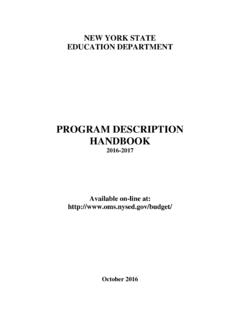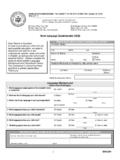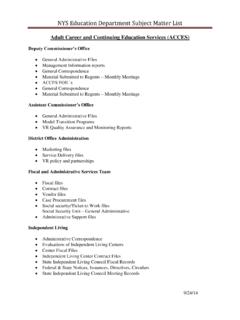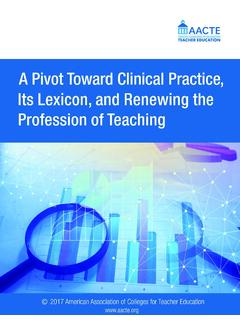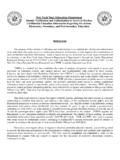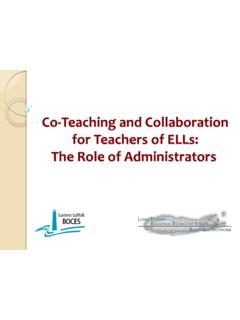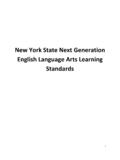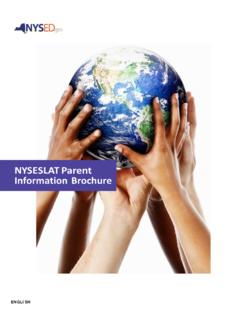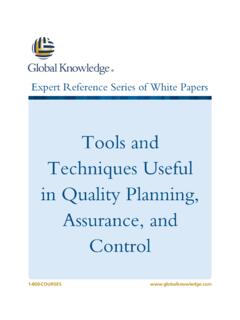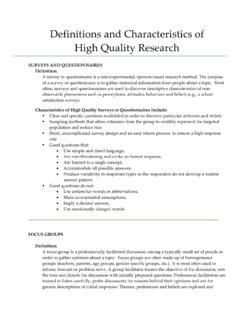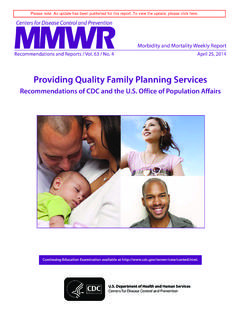Transcription of Work-Based Learning Manual
1 Work-Bas Learning NEW YORK STATE UPDATED 9-2021 Updated 9-2021 0 TABLE OF CONTENTS Section I: Introduction to Work-Based Learning .. 2 Defining Work-Based Learning .. 2 Overview of Work-Based Learning Programs .. 2 Benefits of Work-Based 3 Components of Registered Work-Based Learning 4 Components of Unregistered Work-Based Learning Experiences .. 5 Work-Based Learning Experiences in Specific CTE Programs.
2 5 New York State Registered Work-Based Learning 6 Comparison of Registered Work-Based Learning 7 Comparison of Unregistered Work-Based Learning 8 Work-Based Learning Coordinator 9 Professional Organization for Work-Based Learning Coordinators .. 11 New York State Learning 11 Records Retention .. 12 Working Papers and Social Security 12 Section II: Career Awareness and Exploration .. 13 Overview of Career Awareness and Exploration: Unregistered Work-Based Learning Experiences .. 13 Community- based Work Programs (for students with disabilities).. 16 Career Exploration Internship Program (CEIP).. 20 General Education Work Experience Program and Work Experience and Career Exploration 23 Remote Work-Based Learning Experiences.
3 26 Section III: Career Development and Application .. 27 Overview of CO-OP 27 Section IV: Other Program 32 Career Planning .. 32 Related Cl assroom 33 Related General 33 Instruction Related to Training Site .. 33 Section V: Department of Labor Regulations .. 35 Regulations Regarding the Employment of Minors .. 35 US Department of Labor Prohibitive Hazardous Occupations .. 35 Hazardous Occupations ..35 Application of New York State Labor Laws in Registered Work-Based Learning 36 New York State Department of 38 Section VI: Workers Compensation Insurance .. 39 Section VII: Resources and 40 1 SECTION I: INTRODUCTION TO Work-Based Learning DEFINING Work-Based Learning Work-Based Learning is authentic Learning experiences that allow students to explore their career goals, abilities, and interests while applying their academic and technical knowledge and skills in a real-world context.
4 These experiences are planned and supervised by instructional staff in collaboration with business, industry, or community partners. high quality Work-Based Learning will provide effective and equitable experiences to empower all students to become confident workers and culturally competent citizens of New York State. OVERVIEW OF Work-Based Learning PROGRAMS Work-Based Learning IN THE CLASSROOM AND WORKPLACE Work-Based Learning takes place at both the workplace and classroom, thus making career exploration and development easier and more natural by connecting Learning in school to the application of that Learning in the workplace. The business or community organization essentially becomes a micro-classroom with the emphasis on Learning rather than productivity.
5 The concurrent classroom Learning focuses on the academic and technical skills for career awareness and development and employment. Fair Labor Standards Act (FLSA) requirements and all federal, state, and local labor requirements must be met for both paid and unpaid Work-Based Learning programs. Work-Based Learning FOR THE CAREER DEVELOPMENT AND OCCUPATIONAL STUDIES (CDOS) COMMENCEMENT CREDENTIAL AND 4+1 CDOS PATHWAY The CDOS Commencement Credential can be earned by students participating in CTE coursework and/or Work-Based Learning experiences. The Work-Based Learning experiences include both the New York State registered programs and the unregistered experiences mentioned later in this Manual .
6 It is the responsibility of the school district to track the student s hours and retain documentation in the student s permanent file. The school district may collaborate with the regional BOCES center if the student is earning some of the Work-Based Learning hours through the BOCES. Students wishing to earn the CDOS credential are held to the same requirements outlined in this Manual that define which Work-Based Learning hours can be counted toward credential attainment. 2 Work-Based Learning FOR NYSED-APPROVED CTE PROGRAMS The Strengthening Career and Technical Education for the 21st Century Act, also known as Perkins V, introduced a state-selected program quality indicator as one of the measures of grant performance.
7 New York State selected participation in Work-Based Learning as its program quality indicator for local Perkins recipients. The program quality indicator measures the percentage of students in approved programs who complete at least 54 hours of Work-Based Learning . The 54-hour benchmark was chosen to align with Work-Based Learning requirements under CDOS Credential Option 1. To meet this program- quality indicator, recipients of Perkins funding should ensure that at least 54 hours of Work-Based Learning experiences are available to all students in approved programs. Percentages are calculated for exiting students in the graduation cohort. If a school does not currently receive Perkins funding for their approved programs, then Work-Based Learning opportunities must still be available to all students in those programs as per Section (6)(iv)(2)(iv) of Commissioner s Regulations.
8 It is a best practice that the school ensures that all students complete at least 54 hours. This will allow students to obtain the CDOS Credential using Option 1. Work-Based Learning in NYSED-approved programs can consist of any of the registered or unregistered options outlined in this Manual . BENEFITS OF Work-Based Learning BENEFITS FOR STUDENTS Provides opportunities to apply classroom Learning to workplace experiences Establishes clear connections between education and worksite career applications Creates opportunities for exploration of possible careers Increases motivation to stay in school by making education more relevant Improves awareness of post-secondary opportunities Increases technical skills through their application in authentic tasks Promotes the practice of positive work habits Increases understanding of workplace expectations and skills needed Enhances general workplace competencies, such as communication, teamwork.
9 And project planning Allows observation of work ethics of employer and employees Establishes professional contacts for future employment and mentoring BENEFITS FOR EMPLOYERS Encourages involvement in the curriculum development process Establishes a connection between industry professionals and education providers Develops good relationships between worksite mentors and students Provides potential skilled and motivated employees Offers an opportunity to provide community service 3 BENEFITS FOR SCHOOLS Provides access to new and emerging techniques and technology Makes education more relevant and valuable for students Enhances the ability to meet the needs of diverse students Provides opportunities for individualized instruction Enhances student retention Promotes faculty interactions with the community Contributes to staff development BENEFITS FOR THE COMMUNITY Creates an environment of collaboration and cooperation Builds confidence in the school system as results are observable Encourages respect and tolerance between different groups Builds the foundation for a more productive economy COMPONENTS OF REGISTERED Work-Based Learning PROGRAMS The New York State Education Department registers four types
10 Of Work-Based Learning programs, paid and unpaid, that enable students to explore their career interests with the collaboration of education and business partners. Each program offers students the opportunity to work directly with a business mentor. The Career Exploration Internship Program (CEIP), General Education Work Experience Program (GEWEP), Work Experience & Career Exploration Program (WECEP), and Cooperative Career and Technical Education Work Experience Program (CO-OP) require several essential components. These components are: A certified teacher or guidance counselor to serve as Work-Based Learning coordinator with the appropriate Work-Based Learning extension Approval of the registration by the NYSED Industry advisory committee Appropriate worksite placement Safety training prior to placement at a worksite Supervised on-the-job training Related in-school instruction Coordination of in-school and worksite components Memorandum of agreement for the extended classroom Student training plan Emergency medical form Employer evaluation Copy of student working papers These programs are further defined in Section II: Career Awareness and Exploration.
